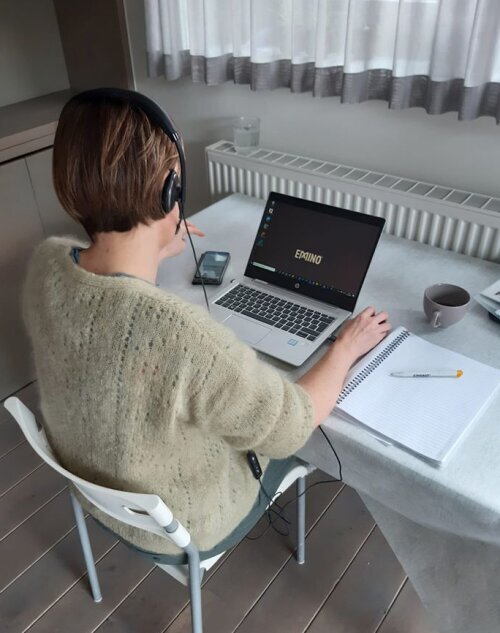Call to work from home was heeded
March 10 2020
More than half a million Belgians participated in the UAntwerp corona study on Tuesday

On Tuesday, Belgians massively filled in the corona study questionnaire, an initiative of the University of Antwerp. The analysis of the results will of course take time, but the first data already show that more people started working from home after the government’s call.
On Tuesday, the University of Antwerp, in collaboration with colleagues from the KU Leuven and Hasselt University, launched an online questionnaire to find out how Belgians are changing their behaviour in response to the corona crisis. The results allow the experts to better estimate the evolution of the corona curve. From 12 noon to 8 p.m. everyone could fill in the questionnaire at www.corona-study.be. The number of responses was absolutely phenomenal: more than 560,000 people filled in the questionnaire.
‘It’s great that so many people took the time to fill in the questions’, epidemiologist Pierre Van Damme reacts. ‘It’s proof that many people take the corona crisis seriously. They show commitment and perhaps also express concern by participating. However, it’s important to note that this is a barometer study. This has its limitations: we know that this is not the response of the average Belgian or Fleming, but of a subgroup that was able and willing to participate. There were clearly more women than men participating, and more Flemings than Walloons. But even then, we can already see some important signs in this questionnaire.’
Some observations:
- 257,000 respondents said they worked from home on Tuesday. 104,000 of them said they did not work from home at all last week. This large increase is a clear indication that teleworking is already having an effect and that the government’s call is being heeded.
- About 10% said that they could work from home yesterday, according to their own assessment, but their manager didn’t give them permission to do so.
- More than three quarters of families with children indicated that the children stayed home on Tuesday.
- 3% had no other solution than to let their children stay at their grandparents on Tuesday.
The study will be repeated every Tuesday in the coming weeks. The methodology of the questionnaire will be fine-tuned, partly based on the feedback from participants, for example with regard to people living alone.
‘This repetition allows us to make better projections based on existing and new mathematical models’, health economist Philippe Beutels explains. ‘It’s also particularly useful for any future waves of the epidemic: linking repeated measurements to the evolution of the epidemic over the next few weeks provides us with valuable key points.’